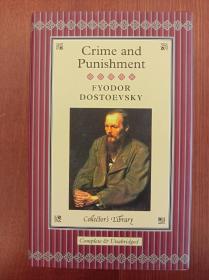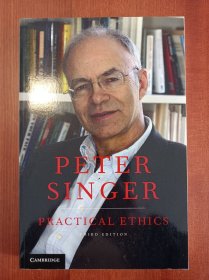
Crime and Punishment (Collector's Library)(红色布面精装口袋书,现货,实拍书影)
布面口袋书,方便携带阅读
¥ 158 九五品
仅1件
作者Fyodor Dostoyevsky (author); Constance Garnett (translator); Oliver Francis (afterword)
出版社CRW Publishing Limited
ISBN9781904633341
出版时间2004-02
装帧精装
页数734页
货号d4
上书时间2024-12-26
- 在售商品 暂无
- 平均发货时间 13小时
- 好评率 暂无
- 最新上架
商品详情
- 品相描述:九五品
-
外表边缘轻微磕碰磨损,新书未曾使用,详见实拍书影。
5@d4
- 商品描述
-
Crime and Punishment is the story of a brutal double murder and its aftermath. Raskolnikov, a poor student, kills a pawnbroker and her sister, and then has to face up to the moral consequences of his actions. The novel is compelling and rewarding, full of meaning and symbolism, and raises profound questions about the individual and society, and the nature of free will. Translated from the Russian by Constance Garnett, with an Afterword by Oliver Francis.
Fyodor Dostoevsky was born in Moscow in 1821. Between 1838 and 1843 he studied at the St Petersburg Engineering Academy. His first work of fiction was the epistolary novel Poor Folk (1846), which met with a generally favourable response. However, his immediately subsequent works were less enthusiastically received. In 1849 Dostoevsky was arrested as a member of the socialist Petrashevsky circle, and subjected to a mock execution. He suffered four years in a Siberian penal settlement and then another four years of enforced military service. He returned to writing in the late 1850s and travelled abroad in the 1860s. It was during the last twenty years of his life that he wrote the iconic works, such as Notes from the Underground (1864), Crime and Punishment (1866), The Idiot (1868) and The Brothers Karamazov (1880), which were to form the basis of his formidable reputation. He died in 1881.
相关推荐
-

Crime and Punishment
八五品运城
¥ 60.00
-

Crime and Punishment
八五品北京
¥ 100.00
-

Crime and Punishment
九五品上海
¥ 88.00
-

crime and punishment
八五品成都
¥ 52.00
-

Crime and Punishment
九品信阳
¥ 80.00
-

CRIME AND CRIMINOLOGY
八五品长沙
¥ 62.10
-

CRIME AND DESTINY
八品上海
¥ 40.00
-

Crime and Punishment
八五品长沙
¥ 68.00
-

Crime and punishment
八五品广州
¥ 18.00
-

CRIME AND PUNISHMENT
九品北京
¥ 20.00
— 没有更多了 —





















以下为对购买帮助不大的评价